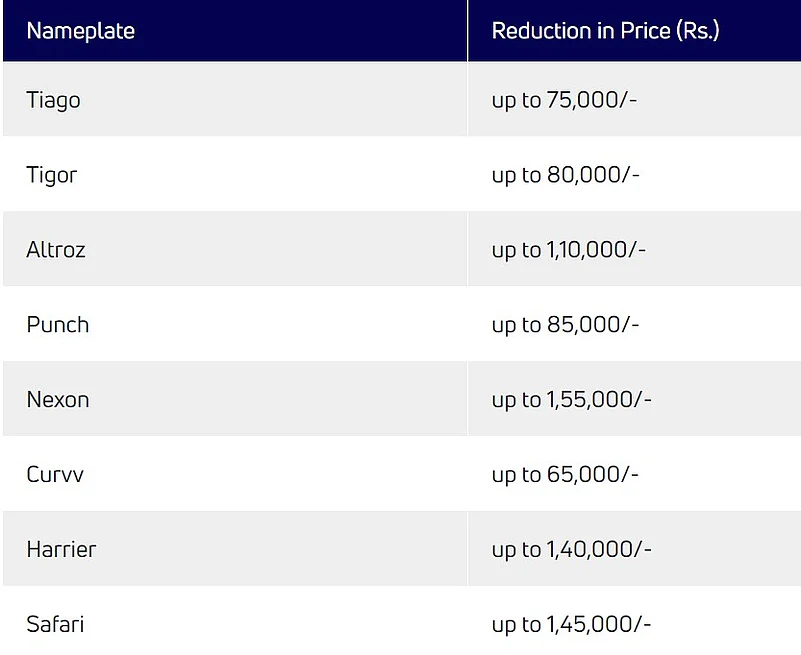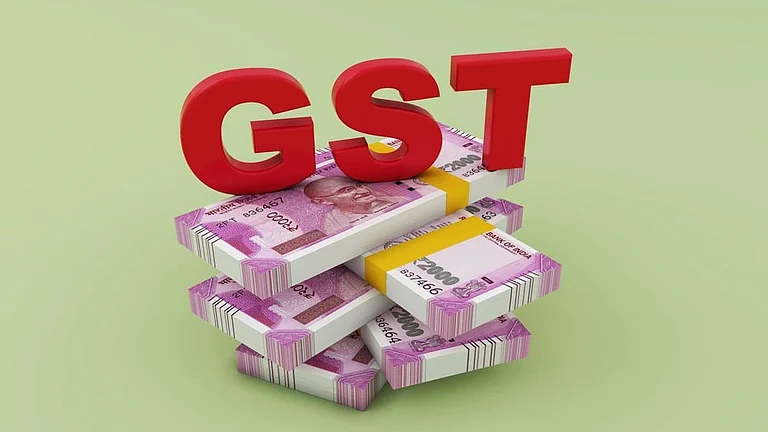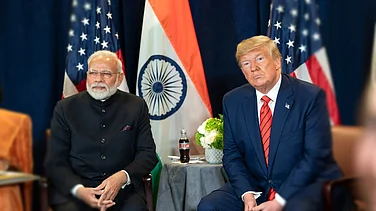
Tata Motors to pass full GST cut to customers effective September 22, 2025
Model price drops announced: Nexon up to ₹155,000; Tiago up to ₹75,000
Move aims to boost festive-season demand and reduce dealer discount reliance
First major OEM pledge may pressure rivals to pass tax benefits
Tata Motors announced on Friday it will pass the entire benefit of the Goods and Services Tax (GST) cut on passenger vehicles to customers, with the revised, lower prices taking effect on September 22, the day new GST slabs come into force.
The company said the change will make its small cars and SUVs materially cheaper, with the most affordable model, the Tiago, seeing price falls of up to Rs 75,000 and the Nexon sub-4m SUV dropping by as much as Rs 155,000.
Tata provided a model-wise guide to likely maximum reductions, saying key moves include the Tiago (up to Rs 75,000), Tigor (up to Rs 80,000), Altroz (up to Rs 110,000), Punch (up to Rs 85,000), Nexon (up to Rs 155,000), Curvv (up to Rs 65,000), Harrier (up to Rs 140,000) and Safari (up to Rs 145,000). The company advised customers to check with dealers for exact, variant-level price changes once the new tax rules are applied.

Company Rationale
Shailesh Chandra, managing director of Tata Motors Passenger Vehicles and Tata Passenger Electric Mobility, said the company was acting in line with the government’s intent to make mobility more affordable and described the move as consistent with Tata’s “Customer First” philosophy.
Tata positioned the change as a way to accelerate vehicle purchases by first-time buyers and broaden access to “new age mobility.”
Tata Motors is the first major OEM to publicly commit to passing the full GST benefit to end consumers, a step that could pressure rivals to follow rather than retain part of the tax windfall to protect margins.
Industry sources said price reductions may allow manufacturers and dealers to scale back the deep incentives and discounts that had propped up volumes amid sluggish demand.
Policy Context
The GST Council’s overhaul reduced levies on many small cars and mass-market motorcycles from 28% to 18% while consolidating higher-end passenger vehicles into a flat 40% slab; electric-vehicle tax rates remain unchanged.
The timing, just ahead of the peak festive buying season, is expected to unlock demand from buyers who delayed purchases anticipating lower prices.
Tata encouraged customers to book early amid expectations of stronger festival-season delivery demand. Consumers should confirm final on-road prices with authorised dealers after September 22, 2025, when taxes will be applied at the new rates and variant-specific pricing will be firmed up.
If other manufacturers follow Tata’s lead, the GST change could rapidly shift market dynamics: lower sticker prices may reduce the need for promotional discounts, revive buyer interest in high-value segments such as compact SUVs, and set the tone for a potentially stronger festive season for vehicle sales.


































